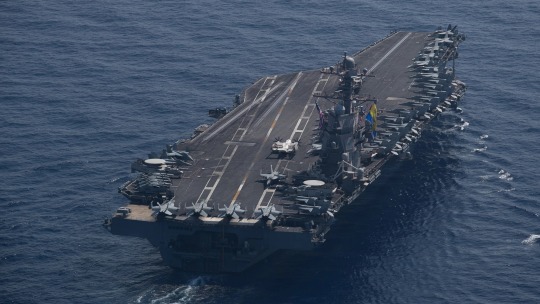#Bulgaria World War II
Photo

Bulgaria World War II
Bulgaria’s Complex Alliances and Shifting Fortunes
Diplomatic Maneuvers (1940)
In 1940, the foreign ministers of Russia and Germany, Molotov and von Ribbentrop, met in Berlin. Molotov sought German assistance in establishing Soviet influence in Bulgaria, but Germany declined, preparing for war against the Soviet Union. Germany then urged smaller countries to join the Tripartite Pact (Germany, Italy, and Japan), requiring them to make their territory available to the German Army. Romania, Hungary, and Slovakia complied. Bulgaria aimed to stay neutral, but with German troops entering Romania and Turkey aligning with England, Bulgaria faced threats from both sides. A Turkish-Bulgarian declaration of friendship was negotiated, and on March 1, 1941, Bulgaria reluctantly joined the Tripartite Pact.
German Collaboration and Territorial Gains (1941)
Bulgaria cooperated passively with Germany in actions against Greece and Yugoslavia, leading to the return of Macedonian territory taken by Yugoslavia and Greece. While Bulgaria did not contribute troops to the German war against Russia, its territory served as a base for German operations Daily Tours Istanbul.
Turning Tides and Negotiations (1943)
The devastating German defeat at Stalingrad in January 1943 prompted the Soviet army to take the offensive. One direction of the offensive aimed toward the Balkans, with the goal of entering Bulgaria and reaching the Balkan Straits. King Boris began negotiating with his father-in-law, King Victor Emmanuel of Italy, for an exit from the war. Hitler summoned King Boris to Germany, where he fell ill and died shortly after his return to Bulgaria.
Puppet Government and Allies’ Warning (1943)
Following King Boris’s death, a puppet German government under Dobri Bozhilov and Regent Filov was installed in Bulgaria. Earlier that year, the Allies had tried to secretly negotiate with Bulgaria to break ties with the Germans. Bulgaria claimed neutrality, arguing that since no Bulgarian troops were fighting, they were not aligned with Germany. The United States warned Bulgaria of potential air strikes against major cities if they did not openly sever ties with the Germans.
0 notes
Photo

Bulgaria World War II
Bulgaria’s Complex Alliances and Shifting Fortunes
Diplomatic Maneuvers (1940)
In 1940, the foreign ministers of Russia and Germany, Molotov and von Ribbentrop, met in Berlin. Molotov sought German assistance in establishing Soviet influence in Bulgaria, but Germany declined, preparing for war against the Soviet Union. Germany then urged smaller countries to join the Tripartite Pact (Germany, Italy, and Japan), requiring them to make their territory available to the German Army. Romania, Hungary, and Slovakia complied. Bulgaria aimed to stay neutral, but with German troops entering Romania and Turkey aligning with England, Bulgaria faced threats from both sides. A Turkish-Bulgarian declaration of friendship was negotiated, and on March 1, 1941, Bulgaria reluctantly joined the Tripartite Pact.
German Collaboration and Territorial Gains (1941)
Bulgaria cooperated passively with Germany in actions against Greece and Yugoslavia, leading to the return of Macedonian territory taken by Yugoslavia and Greece. While Bulgaria did not contribute troops to the German war against Russia, its territory served as a base for German operations Daily Tours Istanbul.
Turning Tides and Negotiations (1943)
The devastating German defeat at Stalingrad in January 1943 prompted the Soviet army to take the offensive. One direction of the offensive aimed toward the Balkans, with the goal of entering Bulgaria and reaching the Balkan Straits. King Boris began negotiating with his father-in-law, King Victor Emmanuel of Italy, for an exit from the war. Hitler summoned King Boris to Germany, where he fell ill and died shortly after his return to Bulgaria.
Puppet Government and Allies’ Warning (1943)
Following King Boris’s death, a puppet German government under Dobri Bozhilov and Regent Filov was installed in Bulgaria. Earlier that year, the Allies had tried to secretly negotiate with Bulgaria to break ties with the Germans. Bulgaria claimed neutrality, arguing that since no Bulgarian troops were fighting, they were not aligned with Germany. The United States warned Bulgaria of potential air strikes against major cities if they did not openly sever ties with the Germans.
0 notes
Photo

Bulgaria World War II
Bulgaria’s Complex Alliances and Shifting Fortunes
Diplomatic Maneuvers (1940)
In 1940, the foreign ministers of Russia and Germany, Molotov and von Ribbentrop, met in Berlin. Molotov sought German assistance in establishing Soviet influence in Bulgaria, but Germany declined, preparing for war against the Soviet Union. Germany then urged smaller countries to join the Tripartite Pact (Germany, Italy, and Japan), requiring them to make their territory available to the German Army. Romania, Hungary, and Slovakia complied. Bulgaria aimed to stay neutral, but with German troops entering Romania and Turkey aligning with England, Bulgaria faced threats from both sides. A Turkish-Bulgarian declaration of friendship was negotiated, and on March 1, 1941, Bulgaria reluctantly joined the Tripartite Pact.
German Collaboration and Territorial Gains (1941)
Bulgaria cooperated passively with Germany in actions against Greece and Yugoslavia, leading to the return of Macedonian territory taken by Yugoslavia and Greece. While Bulgaria did not contribute troops to the German war against Russia, its territory served as a base for German operations Daily Tours Istanbul.
Turning Tides and Negotiations (1943)
The devastating German defeat at Stalingrad in January 1943 prompted the Soviet army to take the offensive. One direction of the offensive aimed toward the Balkans, with the goal of entering Bulgaria and reaching the Balkan Straits. King Boris began negotiating with his father-in-law, King Victor Emmanuel of Italy, for an exit from the war. Hitler summoned King Boris to Germany, where he fell ill and died shortly after his return to Bulgaria.
Puppet Government and Allies’ Warning (1943)
Following King Boris’s death, a puppet German government under Dobri Bozhilov and Regent Filov was installed in Bulgaria. Earlier that year, the Allies had tried to secretly negotiate with Bulgaria to break ties with the Germans. Bulgaria claimed neutrality, arguing that since no Bulgarian troops were fighting, they were not aligned with Germany. The United States warned Bulgaria of potential air strikes against major cities if they did not openly sever ties with the Germans.
0 notes
Photo

Bulgaria World War II
Bulgaria’s Complex Alliances and Shifting Fortunes
Diplomatic Maneuvers (1940)
In 1940, the foreign ministers of Russia and Germany, Molotov and von Ribbentrop, met in Berlin. Molotov sought German assistance in establishing Soviet influence in Bulgaria, but Germany declined, preparing for war against the Soviet Union. Germany then urged smaller countries to join the Tripartite Pact (Germany, Italy, and Japan), requiring them to make their territory available to the German Army. Romania, Hungary, and Slovakia complied. Bulgaria aimed to stay neutral, but with German troops entering Romania and Turkey aligning with England, Bulgaria faced threats from both sides. A Turkish-Bulgarian declaration of friendship was negotiated, and on March 1, 1941, Bulgaria reluctantly joined the Tripartite Pact.
German Collaboration and Territorial Gains (1941)
Bulgaria cooperated passively with Germany in actions against Greece and Yugoslavia, leading to the return of Macedonian territory taken by Yugoslavia and Greece. While Bulgaria did not contribute troops to the German war against Russia, its territory served as a base for German operations Daily Tours Istanbul.
Turning Tides and Negotiations (1943)
The devastating German defeat at Stalingrad in January 1943 prompted the Soviet army to take the offensive. One direction of the offensive aimed toward the Balkans, with the goal of entering Bulgaria and reaching the Balkan Straits. King Boris began negotiating with his father-in-law, King Victor Emmanuel of Italy, for an exit from the war. Hitler summoned King Boris to Germany, where he fell ill and died shortly after his return to Bulgaria.
Puppet Government and Allies’ Warning (1943)
Following King Boris’s death, a puppet German government under Dobri Bozhilov and Regent Filov was installed in Bulgaria. Earlier that year, the Allies had tried to secretly negotiate with Bulgaria to break ties with the Germans. Bulgaria claimed neutrality, arguing that since no Bulgarian troops were fighting, they were not aligned with Germany. The United States warned Bulgaria of potential air strikes against major cities if they did not openly sever ties with the Germans.
0 notes
Photo

Bulgaria World War II
Bulgaria’s Complex Alliances and Shifting Fortunes
Diplomatic Maneuvers (1940)
In 1940, the foreign ministers of Russia and Germany, Molotov and von Ribbentrop, met in Berlin. Molotov sought German assistance in establishing Soviet influence in Bulgaria, but Germany declined, preparing for war against the Soviet Union. Germany then urged smaller countries to join the Tripartite Pact (Germany, Italy, and Japan), requiring them to make their territory available to the German Army. Romania, Hungary, and Slovakia complied. Bulgaria aimed to stay neutral, but with German troops entering Romania and Turkey aligning with England, Bulgaria faced threats from both sides. A Turkish-Bulgarian declaration of friendship was negotiated, and on March 1, 1941, Bulgaria reluctantly joined the Tripartite Pact.
German Collaboration and Territorial Gains (1941)
Bulgaria cooperated passively with Germany in actions against Greece and Yugoslavia, leading to the return of Macedonian territory taken by Yugoslavia and Greece. While Bulgaria did not contribute troops to the German war against Russia, its territory served as a base for German operations Daily Tours Istanbul.
Turning Tides and Negotiations (1943)
The devastating German defeat at Stalingrad in January 1943 prompted the Soviet army to take the offensive. One direction of the offensive aimed toward the Balkans, with the goal of entering Bulgaria and reaching the Balkan Straits. King Boris began negotiating with his father-in-law, King Victor Emmanuel of Italy, for an exit from the war. Hitler summoned King Boris to Germany, where he fell ill and died shortly after his return to Bulgaria.
Puppet Government and Allies’ Warning (1943)
Following King Boris’s death, a puppet German government under Dobri Bozhilov and Regent Filov was installed in Bulgaria. Earlier that year, the Allies had tried to secretly negotiate with Bulgaria to break ties with the Germans. Bulgaria claimed neutrality, arguing that since no Bulgarian troops were fighting, they were not aligned with Germany. The United States warned Bulgaria of potential air strikes against major cities if they did not openly sever ties with the Germans.
0 notes
Text
New Post has been published on Tereza
Bulgaria World War II
Bulgaria’s Complex Alliances and Shifting Fortunes
Diplomatic Maneuvers (1940)
In 1940, the foreign ministers of Russia and Germany, Molotov and von Ribbentrop, met in Berlin. Molotov sought German assistance in establishing Soviet influence in Bulgaria, but Germany declined, preparing for war against the Soviet Union. Germany then urged smaller countries to join the Tripartite Pact (Germany, Italy, and Japan), requiring them to make their territory available to the German Army. Romania, Hungary, and Slovakia complied. Bulgaria aimed to stay neutral, but with German troops entering Romania and Turkey aligning with England, Bulgaria faced threats from both sides. A Turkish-Bulgarian declaration of friendship was negotiated, and on March 1, 1941, Bulgaria reluctantly joined the Tripartite Pact.
German Collaboration and Territorial Gains (1941)
Bulgaria cooperated passively with Germany in actions against Greece and Yugoslavia, leading to the return of Macedonian territory taken by Yugoslavia and Greece. While Bulgaria did not contribute troops to the German war against Russia, its territory served as a base for German operations Daily Tours Istanbul.
Turning Tides and Negotiations (1943)
The devastating German defeat at Stalingrad in January 1943 prompted the Soviet army to take the offensive. One direction of the offensive aimed toward the Balkans, with the goal of entering Bulgaria and reaching the Balkan Straits. King Boris began negotiating with his father-in-law, King Victor Emmanuel of Italy, for an exit from the war. Hitler summoned King Boris to Germany, where he fell ill and died shortly after his return to Bulgaria.
Puppet Government and Allies’ Warning (1943)
Following King Boris’s death, a puppet German government under Dobri Bozhilov and Regent Filov was installed in Bulgaria. Earlier that year, the Allies had tried to secretly negotiate with Bulgaria to break ties with the Germans. Bulgaria claimed neutrality, arguing that since no Bulgarian troops were fighting, they were not aligned with Germany. The United States warned Bulgaria of potential air strikes against major cities if they did not openly sever ties with the Germans.
0 notes
Photo

Bulgaria World War II
Bulgaria’s Complex Alliances and Shifting Fortunes
Diplomatic Maneuvers (1940)
In 1940, the foreign ministers of Russia and Germany, Molotov and von Ribbentrop, met in Berlin. Molotov sought German assistance in establishing Soviet influence in Bulgaria, but Germany declined, preparing for war against the Soviet Union. Germany then urged smaller countries to join the Tripartite Pact (Germany, Italy, and Japan), requiring them to make their territory available to the German Army. Romania, Hungary, and Slovakia complied. Bulgaria aimed to stay neutral, but with German troops entering Romania and Turkey aligning with England, Bulgaria faced threats from both sides. A Turkish-Bulgarian declaration of friendship was negotiated, and on March 1, 1941, Bulgaria reluctantly joined the Tripartite Pact.
German Collaboration and Territorial Gains (1941)
Bulgaria cooperated passively with Germany in actions against Greece and Yugoslavia, leading to the return of Macedonian territory taken by Yugoslavia and Greece. While Bulgaria did not contribute troops to the German war against Russia, its territory served as a base for German operations Daily Tours Istanbul.
Turning Tides and Negotiations (1943)
The devastating German defeat at Stalingrad in January 1943 prompted the Soviet army to take the offensive. One direction of the offensive aimed toward the Balkans, with the goal of entering Bulgaria and reaching the Balkan Straits. King Boris began negotiating with his father-in-law, King Victor Emmanuel of Italy, for an exit from the war. Hitler summoned King Boris to Germany, where he fell ill and died shortly after his return to Bulgaria.
Puppet Government and Allies’ Warning (1943)
Following King Boris’s death, a puppet German government under Dobri Bozhilov and Regent Filov was installed in Bulgaria. Earlier that year, the Allies had tried to secretly negotiate with Bulgaria to break ties with the Germans. Bulgaria claimed neutrality, arguing that since no Bulgarian troops were fighting, they were not aligned with Germany. The United States warned Bulgaria of potential air strikes against major cities if they did not openly sever ties with the Germans.
0 notes
Note
I just stumbled across your post a few years ago on the death of Lyon Gardiner Tyler Jr, one of John Tyler's grandsons. I googled his brother, Harrison Ruffin Tyler, and it turns out he recently turned 95. Such a short (in generational terms) link back to a man born in 1790 still amazes me.
Me too. It's a pretty wild quirk of history.
Another one that I've always found interesting is that the last person to reign as a tsar (and the last monarch who reigned during World War II) is still alive.
#Harrison Ruffin Tyler#History#John Tyler#President Tyler#First Families#World War II#Tsar Simeon II#Bulgaria
18 notes
·
View notes
Text

Sephardic Jewish girl from Bulgaria, early 20th century
The Jewish community in Bulgaria has a long and rich history. Jews already lived in Bulgarian lands under the roman emperor Caligula (AD 37-41). By the time that the Ottoman Empire had full control of the country, the sizeable community was split into Yevanic-speaking Romaniotes, Yiddish -and Hungarian-speaking Ashkenazim, and Ladino-speaking Sephardim. This was until 1640 when a single rabbi was appointed for all three groups. Once the modern state was formed in 1878, Bulgarian Jews were granted equal rights. Jews were drafted into the Bulgarian Army and fought in the Serbo-Bulgarian War (1885), the Balkan Wars (1912-13), and World War I. During World War II, when Bulgaria joined the Axis alliance, due to protests launched by opposition politicians, clergy, and intellectuals, Bulgarian Jews were not sent to the death camps.
2K notes
·
View notes
Link
I can’t ever call WWII news wholesome, but goddamn if this isn’t how you be a good fucking ally.
#wwii#wholesome sunday#bulgarian bishop#metropolitan kirill#orthodox christianity#world war ii#bulgaria#bulgarian
1 note
·
View note
Text

Aircraft carrier USS Gerald Ford will return from mission in defense of Israel
The largest aircraft carrier in the United States returns from the Mediterranean Sea, where it has been parked for almost three months.
Fernando Valduga By Fernando Valduga 03/01/2024 - 08:27in Military, War Zones
The U.S. Navy has determined that its largest aircraft carrier, the USS Gerald R. Ford (CVN-78), will return home after a nearly three-month mission to defend Israel in the Middle East.
The USS Gerald Ford has been stationed at a close distance of Israel's attack in the Mediterranean Sea since October, in an effort to prevent the country's war against Hamas from turning into a regional conflict. However, the U.S. Navy states that the ship will begin its journey back home "in the next few days" and will be replaced by the USS Bataan - an amphibious assault ship named after a battle fought in the Philippines during World War II.
The USS Gerald R. Ford is one of the largest aircraft carriers in the world and the latest and most advanced aircraft carrier in the United States. He was already in the Mediterranean - involved in naval exercises with Italy - before receiving orders to provide support to Israel's Defense Forces after the October 7 terrorist attacks perpetrated by Hamas.
“Immediately after Hamas' brutal attack on Israel, the USS Gerald R. Ford Carrier Strike Group was ordered to go to the eastern Mediterranean to contribute to our regional deterrence and defense posture,” the U.S. Navy said in a statement.

U.S. Defense Secretary Lloyd Austin extended Ford's detachment three times in the hope that his presence would dissuade Iran and groups aligned with Iran, especially Hezbollah from Lebanon, from attacking Israel.
The ship, which carried about 5,000 sailors and more than 100 warplanes in eight squadrons, is now returning to its naval base in Virginia. However, the USS Dwight D. Eisenhower will remain in the Red Sea to face the recent attacks on commercial ships perpetrated by Yemen's Houthi rebels.
“The DoD (Department of Defense) will continue to leverage its posture of collective force in the region to dissuade any state or non-state actor from escalating this crisis beyond Gaza,” the Navy said.
At the end of October, a U.S. Navy warship located in the northern Red Sea shot down three cruise missiles along with a batch of drones that were launched from Yemen and appeared to target Israel, the Pentagon said.
Tags: Military Aviationaircraft carrierUSN - United States Navy/U.S. NavyWar Zones - Middle East
Sharing
tweet
Fernando Valduga
Fernando Valduga
Aviation photographer and pilot since 1992, he has participated in several events and air operations, such as Cruzex, AirVenture, Dayton Airshow and FIDAE. He has works published in specialized aviation magazines in Brazil and abroad. He uses Canon equipment during his photographic work in the world of aviation.
Related news
BRAZILIAN AIR FORCE
FAB signs contract for logistical support of Armed Forces H225M aircraft
03/01/2024 - 08:07
B-2 over-volut at Rose Bowl 2024 in Pasadena, California. (Photo: Mark Holtzman / West Coast Aerial)
MILITARY
VIDEOS: How was the overfly of the B-2 bomber at the Rose Bowl on the first day of 2024
02/01/2024 - 20:01
MILITARY
South Korea selects ELTA Systems radar solutions for its new early warning aircraft
02/01/2024 - 16:00
MILITARY
Aero Vodochody will modernize the L-39ZA Albatros from Bulgaria
02/01/2024 - 14:00
ARMAMENTS
Raytheon guarantees $340 million contract to manufacture more StormBreaker pumps
02/01/2024 - 11:00
MILITARY
From 2024, Russian Aerospace Forces will receive Su-57 fighters with new AL-51F1 engines
02/01/2024 - 09:13
16 notes
·
View notes
Photo

Bulgaria World War II
Bulgaria’s Complex Alliances and Shifting Fortunes
Diplomatic Maneuvers (1940)
In 1940, the foreign ministers of Russia and Germany, Molotov and von Ribbentrop, met in Berlin. Molotov sought German assistance in establishing Soviet influence in Bulgaria, but Germany declined, preparing for war against the Soviet Union. Germany then urged smaller countries to join the Tripartite Pact (Germany, Italy, and Japan), requiring them to make their territory available to the German Army. Romania, Hungary, and Slovakia complied. Bulgaria aimed to stay neutral, but with German troops entering Romania and Turkey aligning with England, Bulgaria faced threats from both sides. A Turkish-Bulgarian declaration of friendship was negotiated, and on March 1, 1941, Bulgaria reluctantly joined the Tripartite Pact.
German Collaboration and Territorial Gains (1941)
Bulgaria cooperated passively with Germany in actions against Greece and Yugoslavia, leading to the return of Macedonian territory taken by Yugoslavia and Greece. While Bulgaria did not contribute troops to the German war against Russia, its territory served as a base for German operations Daily Tours Istanbul.
Turning Tides and Negotiations (1943)
The devastating German defeat at Stalingrad in January 1943 prompted the Soviet army to take the offensive. One direction of the offensive aimed toward the Balkans, with the goal of entering Bulgaria and reaching the Balkan Straits. King Boris began negotiating with his father-in-law, King Victor Emmanuel of Italy, for an exit from the war. Hitler summoned King Boris to Germany, where he fell ill and died shortly after his return to Bulgaria.
Puppet Government and Allies’ Warning (1943)
Following King Boris’s death, a puppet German government under Dobri Bozhilov and Regent Filov was installed in Bulgaria. Earlier that year, the Allies had tried to secretly negotiate with Bulgaria to break ties with the Germans. Bulgaria claimed neutrality, arguing that since no Bulgarian troops were fighting, they were not aligned with Germany. The United States warned Bulgaria of potential air strikes against major cities if they did not openly sever ties with the Germans.
0 notes
Photo

Bulgaria World War II
Bulgaria’s Complex Alliances and Shifting Fortunes
Diplomatic Maneuvers (1940)
In 1940, the foreign ministers of Russia and Germany, Molotov and von Ribbentrop, met in Berlin. Molotov sought German assistance in establishing Soviet influence in Bulgaria, but Germany declined, preparing for war against the Soviet Union. Germany then urged smaller countries to join the Tripartite Pact (Germany, Italy, and Japan), requiring them to make their territory available to the German Army. Romania, Hungary, and Slovakia complied. Bulgaria aimed to stay neutral, but with German troops entering Romania and Turkey aligning with England, Bulgaria faced threats from both sides. A Turkish-Bulgarian declaration of friendship was negotiated, and on March 1, 1941, Bulgaria reluctantly joined the Tripartite Pact.
German Collaboration and Territorial Gains (1941)
Bulgaria cooperated passively with Germany in actions against Greece and Yugoslavia, leading to the return of Macedonian territory taken by Yugoslavia and Greece. While Bulgaria did not contribute troops to the German war against Russia, its territory served as a base for German operations Daily Tours Istanbul.
Turning Tides and Negotiations (1943)
The devastating German defeat at Stalingrad in January 1943 prompted the Soviet army to take the offensive. One direction of the offensive aimed toward the Balkans, with the goal of entering Bulgaria and reaching the Balkan Straits. King Boris began negotiating with his father-in-law, King Victor Emmanuel of Italy, for an exit from the war. Hitler summoned King Boris to Germany, where he fell ill and died shortly after his return to Bulgaria.
Puppet Government and Allies’ Warning (1943)
Following King Boris’s death, a puppet German government under Dobri Bozhilov and Regent Filov was installed in Bulgaria. Earlier that year, the Allies had tried to secretly negotiate with Bulgaria to break ties with the Germans. Bulgaria claimed neutrality, arguing that since no Bulgarian troops were fighting, they were not aligned with Germany. The United States warned Bulgaria of potential air strikes against major cities if they did not openly sever ties with the Germans.
0 notes
Photo

Bulgaria World War II
Bulgaria’s Complex Alliances and Shifting Fortunes
Diplomatic Maneuvers (1940)
In 1940, the foreign ministers of Russia and Germany, Molotov and von Ribbentrop, met in Berlin. Molotov sought German assistance in establishing Soviet influence in Bulgaria, but Germany declined, preparing for war against the Soviet Union. Germany then urged smaller countries to join the Tripartite Pact (Germany, Italy, and Japan), requiring them to make their territory available to the German Army. Romania, Hungary, and Slovakia complied. Bulgaria aimed to stay neutral, but with German troops entering Romania and Turkey aligning with England, Bulgaria faced threats from both sides. A Turkish-Bulgarian declaration of friendship was negotiated, and on March 1, 1941, Bulgaria reluctantly joined the Tripartite Pact.
German Collaboration and Territorial Gains (1941)
Bulgaria cooperated passively with Germany in actions against Greece and Yugoslavia, leading to the return of Macedonian territory taken by Yugoslavia and Greece. While Bulgaria did not contribute troops to the German war against Russia, its territory served as a base for German operations Daily Tours Istanbul.
Turning Tides and Negotiations (1943)
The devastating German defeat at Stalingrad in January 1943 prompted the Soviet army to take the offensive. One direction of the offensive aimed toward the Balkans, with the goal of entering Bulgaria and reaching the Balkan Straits. King Boris began negotiating with his father-in-law, King Victor Emmanuel of Italy, for an exit from the war. Hitler summoned King Boris to Germany, where he fell ill and died shortly after his return to Bulgaria.
Puppet Government and Allies’ Warning (1943)
Following King Boris’s death, a puppet German government under Dobri Bozhilov and Regent Filov was installed in Bulgaria. Earlier that year, the Allies had tried to secretly negotiate with Bulgaria to break ties with the Germans. Bulgaria claimed neutrality, arguing that since no Bulgarian troops were fighting, they were not aligned with Germany. The United States warned Bulgaria of potential air strikes against major cities if they did not openly sever ties with the Germans.
0 notes
Photo

Bulgaria World War II
Bulgaria’s Complex Alliances and Shifting Fortunes
Diplomatic Maneuvers (1940)
In 1940, the foreign ministers of Russia and Germany, Molotov and von Ribbentrop, met in Berlin. Molotov sought German assistance in establishing Soviet influence in Bulgaria, but Germany declined, preparing for war against the Soviet Union. Germany then urged smaller countries to join the Tripartite Pact (Germany, Italy, and Japan), requiring them to make their territory available to the German Army. Romania, Hungary, and Slovakia complied. Bulgaria aimed to stay neutral, but with German troops entering Romania and Turkey aligning with England, Bulgaria faced threats from both sides. A Turkish-Bulgarian declaration of friendship was negotiated, and on March 1, 1941, Bulgaria reluctantly joined the Tripartite Pact.
German Collaboration and Territorial Gains (1941)
Bulgaria cooperated passively with Germany in actions against Greece and Yugoslavia, leading to the return of Macedonian territory taken by Yugoslavia and Greece. While Bulgaria did not contribute troops to the German war against Russia, its territory served as a base for German operations Daily Tours Istanbul.
Turning Tides and Negotiations (1943)
The devastating German defeat at Stalingrad in January 1943 prompted the Soviet army to take the offensive. One direction of the offensive aimed toward the Balkans, with the goal of entering Bulgaria and reaching the Balkan Straits. King Boris began negotiating with his father-in-law, King Victor Emmanuel of Italy, for an exit from the war. Hitler summoned King Boris to Germany, where he fell ill and died shortly after his return to Bulgaria.
Puppet Government and Allies’ Warning (1943)
Following King Boris’s death, a puppet German government under Dobri Bozhilov and Regent Filov was installed in Bulgaria. Earlier that year, the Allies had tried to secretly negotiate with Bulgaria to break ties with the Germans. Bulgaria claimed neutrality, arguing that since no Bulgarian troops were fighting, they were not aligned with Germany. The United States warned Bulgaria of potential air strikes against major cities if they did not openly sever ties with the Germans.
0 notes
Text
New Post has been published on Tereza
Bulgaria World War II
Bulgaria’s Complex Alliances and Shifting Fortunes
Diplomatic Maneuvers (1940)
In 1940, the foreign ministers of Russia and Germany, Molotov and von Ribbentrop, met in Berlin. Molotov sought German assistance in establishing Soviet influence in Bulgaria, but Germany declined, preparing for war against the Soviet Union. Germany then urged smaller countries to join the Tripartite Pact (Germany, Italy, and Japan), requiring them to make their territory available to the German Army. Romania, Hungary, and Slovakia complied. Bulgaria aimed to stay neutral, but with German troops entering Romania and Turkey aligning with England, Bulgaria faced threats from both sides. A Turkish-Bulgarian declaration of friendship was negotiated, and on March 1, 1941, Bulgaria reluctantly joined the Tripartite Pact.
German Collaboration and Territorial Gains (1941)
Bulgaria cooperated passively with Germany in actions against Greece and Yugoslavia, leading to the return of Macedonian territory taken by Yugoslavia and Greece. While Bulgaria did not contribute troops to the German war against Russia, its territory served as a base for German operations Daily Tours Istanbul.
Turning Tides and Negotiations (1943)
The devastating German defeat at Stalingrad in January 1943 prompted the Soviet army to take the offensive. One direction of the offensive aimed toward the Balkans, with the goal of entering Bulgaria and reaching the Balkan Straits. King Boris began negotiating with his father-in-law, King Victor Emmanuel of Italy, for an exit from the war. Hitler summoned King Boris to Germany, where he fell ill and died shortly after his return to Bulgaria.
Puppet Government and Allies’ Warning (1943)
Following King Boris’s death, a puppet German government under Dobri Bozhilov and Regent Filov was installed in Bulgaria. Earlier that year, the Allies had tried to secretly negotiate with Bulgaria to break ties with the Germans. Bulgaria claimed neutrality, arguing that since no Bulgarian troops were fighting, they were not aligned with Germany. The United States warned Bulgaria of potential air strikes against major cities if they did not openly sever ties with the Germans.
0 notes